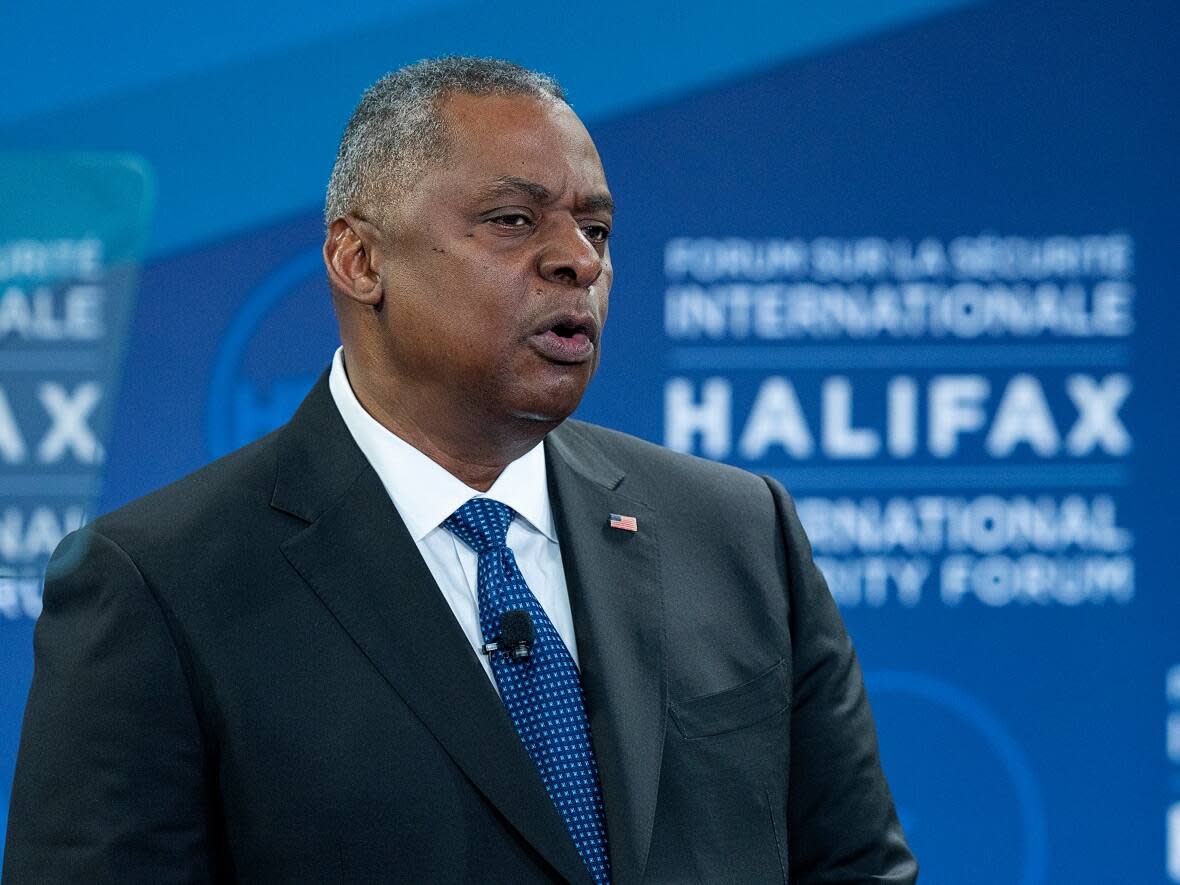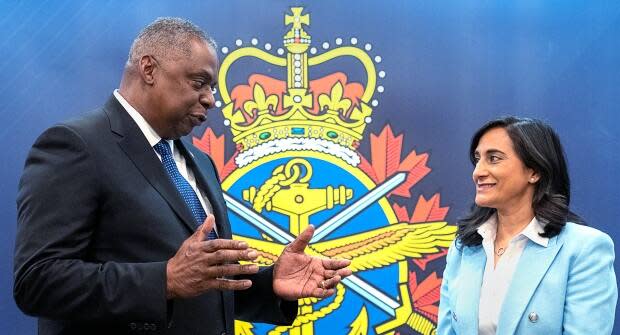Ukraine war offers preview of a world of 'tyranny and turmoil,' says Pentagon chief

U.S. Defence Secretary Lloyd Austin delivered a stark warning on Saturday about the normalization of nuclear blackmail, the kind Western leaders have accused Russia of practising over the war in eastern Europe.
Speaking at the annual Halifax International Security Forum, he said the nearly nine-month-old war in Ukraine has given the global community a glimpse of a possibly dark future where might makes right.
"Russia's invasion offers a preview of a possible world of tyranny and turmoil — turmoil that none of us want to live in," Austin told forum participants, including political and military leaders from the United States, Canada and Europe.
The Kremlin has issued repeated threats — both veiled and occasionally specific — about the possible use of nuclear weapons. It's seen by many leaders and experts as a way to intimidate Western allies and to keep them from supporting Ukraine.
Autocrats, he said, have been taking notes — both military and diplomatic — on how the war has unfolded and could rip pages out of Russian President Vladimir Putin's playbook in the future.
"It's an invitation to an increasingly insecure world haunted by the shadow of nuclear proliferation," Austin said.
"Because Putin's fellow autocrats are watching, and they could well conclude that getting nuclear weapons would give them a hunting licence of their own — and that could drive a dangerous spiral of nuclear proliferation."

No evidence of proliferation
The head of NATO's military council, Admiral Rob Bauer of the Netherlands, called the notion "a concern" but was swift to add that the Western military alliance has seen no evidence that autocratic countries without nuclear weapons are rushing to develop them.
He said it seemed clear which nations Austin was likely referring to with his warning.
"We basically know this is about Iran. This is about North Korea," said Bauer, who held a roundtable with Canadian journalists on the margins of the forum on Saturday.
North Korea has grown increasingly belligerent, issuing its own threats of an "all-out nuclear" response to what it calls U.S. aggression. Pyongyang has fired volleys of missiles into the ocean off South Korea and Japan and accused Washington of using nuclear blackmail.
Other lessons
More than just the rattling of nuclear sabres, Bauer said autocrats could also be taking notes on other aspects of the war in Ukraine, which began Feb. 24 when it was invaded by Russia, in order to leverage what they want out of neighbouring countries.
He said Russia's "use of energy and the use of food to threaten other nations and the population in those nations" has been another hallmark of the war.

Bauer was referring to how Moscow tried to drive a wedge between European countries using natural gas and energy supplies, as well as the blockade of the export of Ukrainian grain — a long dispute that threatened starvation in some parts of Africa.
The speech by Austin was meant to underline why it was important to support Ukraine in driving out Russian forces and came as participants in the forum debated how Western nations remain resilient in the face of rising energy and food prices.
Without Western support, Ukraine would lose the war fairly quickly, Bauer said.
"And if people think that that will result in lower gas prices, and [fewer] problems with food and migration, then I would say they're wrong," he said.
"Because if Ukraine loses this war, there's the next one in line, which is Moldova or Georgia. The Russians will not stop."
WATCH | Russian missile strikes leave Ukrainians without heat, electricity:


